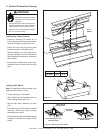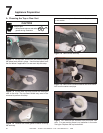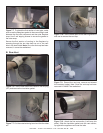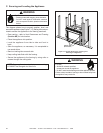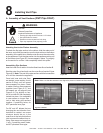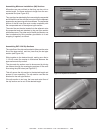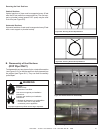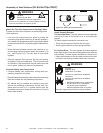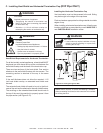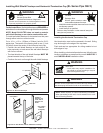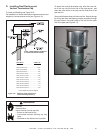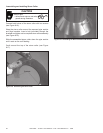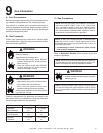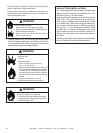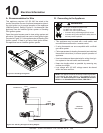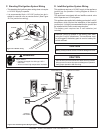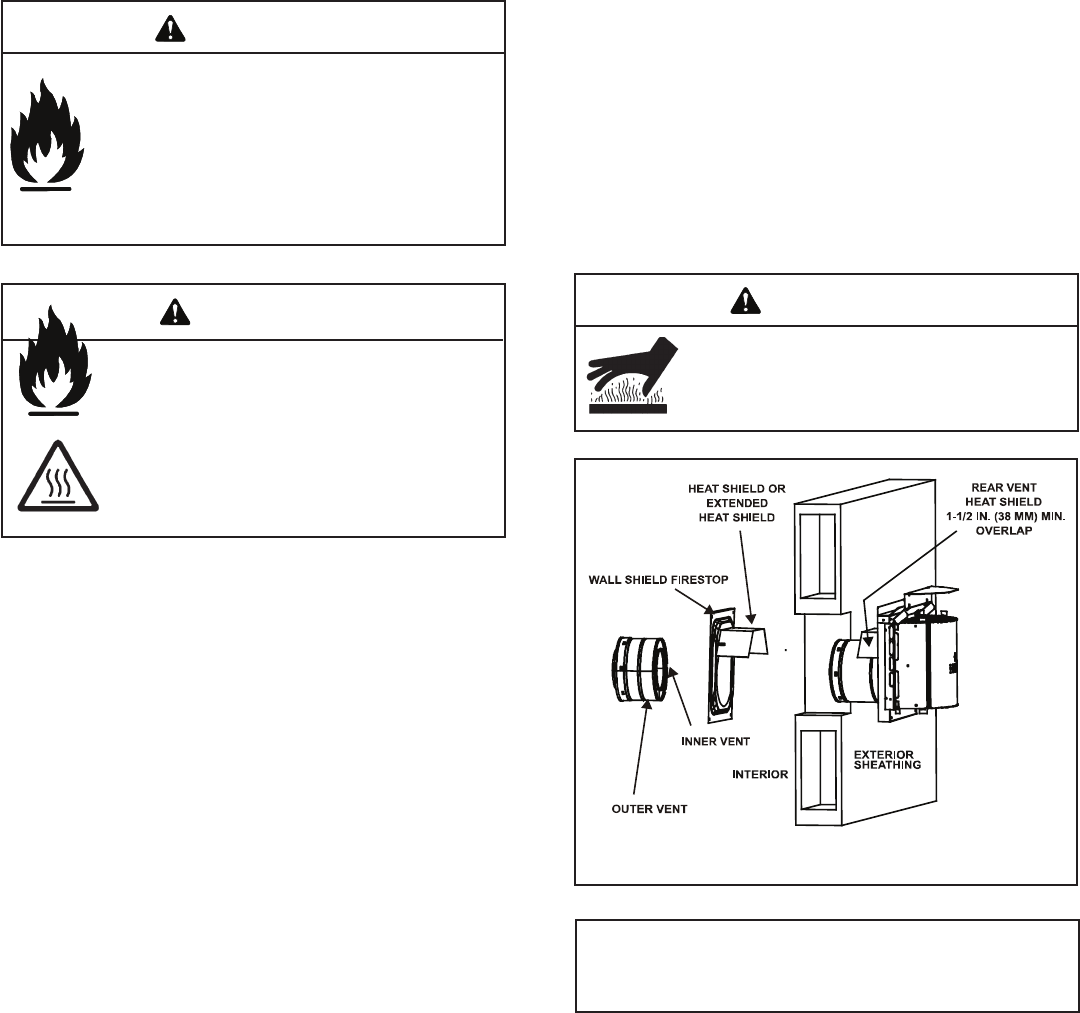
33
Heat & Glo • SL-550 / 750 / 950TR-D • InD • 2044-985 Rev. M • 10/06
C. Installing Heat Shield and Horizontal Termination Cap (DVP Pipe ONLY)
NOTE: Where required, an exterior wall fl ashing is available.
When penetrating a brick wall, a brick extension kit is available
for framing the brick.
Heat Shield Requirements for Horizontal Termination
For all horizontally vented appliances, a heat shield MUST
be placed one inch above the top of the vent between the
wall shield fi restop and the base of the termination cap.
There are two sections of the heat shield. One section
attaches to the wall shield fi restop with two screws. The
remaining section is attached to the cap in the same
manner.
If the wall thickness does not allow the required 1-1/2
inch heat shield overlap, an extended heat shield must
be used.
The extended heat shield will need to be cut to the thick-
ness of the wall and be attached to the wall shield fi restop.
The small leg on the extended heat shield should rest on
the top of the vent (pipe section) to properly space it from
the pipe section (see Figure 8.12).
Installing the Horizontal Termination Cap
Vent termination must not be recessed in the wall. Siding
may be brought to the edge of the cap base.
Flash and seal as appropriate for siding material at outside
edges of cap.
When installing a horizontal termination cap, follow the cap
location guidelines as prescribed by current ANSI Z223.1
and CAN/CGA-B149 installation codes.
Figure 8.12 Venting through the Wall
Burn Risk
• Local codes may require installation of a cap
shield to prevent anything or anyone from
touching the hot cap.
Fire Hazard
Impaired performance of appliance
• Telescoping flue section of termination cap
MUST be used when connecting pipe section
to termination cap.
• Maintain a 1-1/2 inch minimum overlap on
telescoping fl ue section of termination cap.
Fire Risk
Exhaust Fumes Risk
Impaired Performance of Appliance
• Overlap pipe slip sections at least 1-1/2 inches.
• Use pilot holes for screws.
• Screws must not exceed 1 inch long.
• Pipe may separate if not properly joined.
WARNING
WARNING
WARNING



